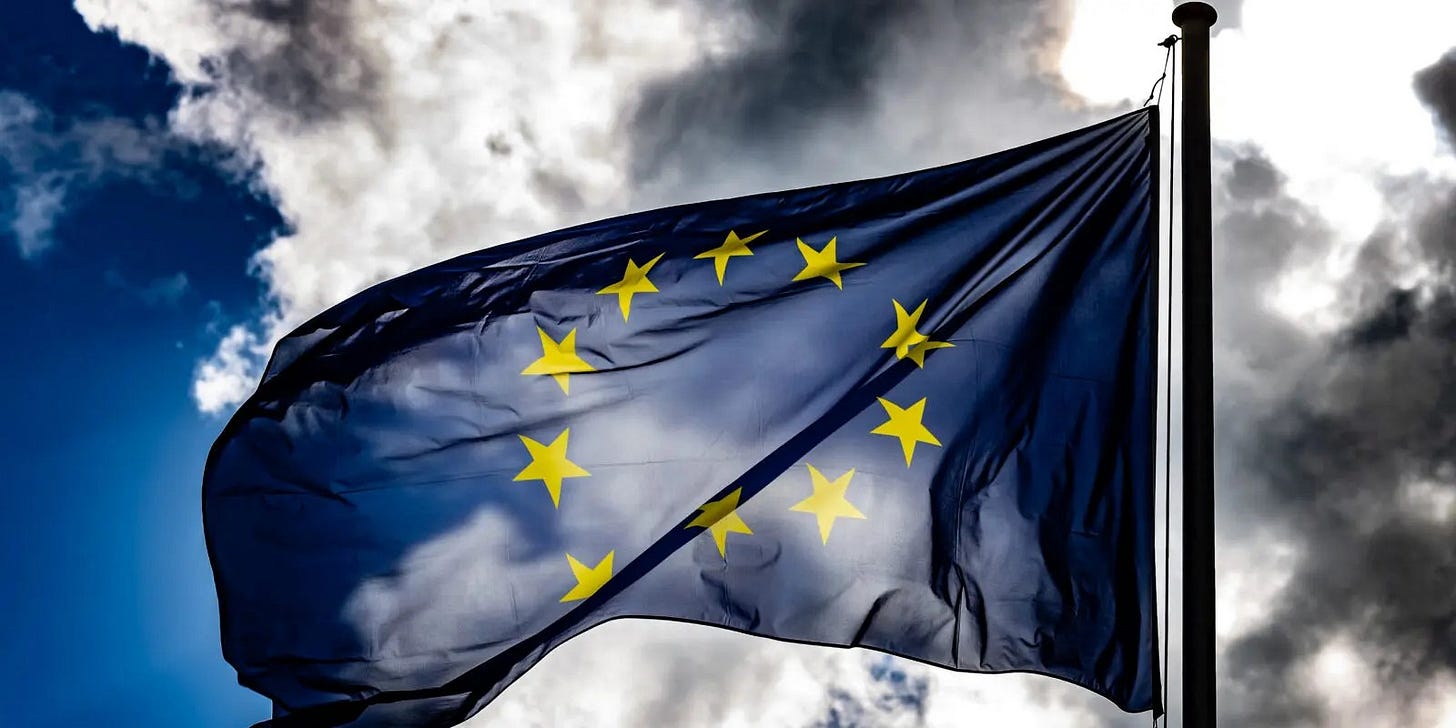Curb Your EU Enthusiasm
Dalibor Rohac’s ‘Governing the EU in an Age of Division’ argues that while the European Union has many benefits, attempts to homogenize a culturally diverse set of countries risk holding it back

When I was first asked to review Dalibor Rohac’s new book, “Governing the EU in an Age of Division,” I nearly declined. I am not an expert in EU affairs. “That’s perfect,” they said. I raised my eyebrows in suspicion—and then read the book.
The European Union has been an astonishing economic success, but can it survive this age of division? The bloc is grappling with several challenges at present—the war in Ukraine, the adjustment costs associated with climate change, the transition away from hydrocarbons, anti-immigration sentiment and a refugee crisis. Rohac seems to be saying yes, the EU can survive, but only if its members stick to the bloc’s core mission: Cooperate on foreign defense policy and trade. Let individual countries deal with the social and cultural issues in their own way, he argues ever so subtly. Trying to do it all is ambitious and maybe even reckless for the EU. Unless it curbs its enthusiasm, it risks failing in the process and may end up losing it all.
The EU Is Mostly Working
Three main arguments for the formation of the European Union were peace, prosperity and geopolitical heft. Winston Churchill—statesman, soldier and writer, who served twice as U.K. prime minister—was convinced that after the Second World War only a united Europe could guarantee peace. The “United States of Europe,” he argued, “could help to eliminate the ills of nationalism and warmongering once and for all.”
Indeed, since the EU’s formation, no nation within the union has gone to war with another one. After a few bumpy years following the 1993 Maastricht Treaty, which created the EU, real incomes across member nations surged. The European Commission at the negotiating table is stronger than any one of its member nations could be.
The common currency has also been a success. Empirical work suggests the euro boosted intra-eurozone trade by 5% to 10%. Having one currency across the EU removed the need for exchanging money, eliminated currency risks and allowed European businesses to lock in best prices from suppliers in other eurozone countries. The transparency and competition that followed was good for trade, investment, consumers and the business environment.
The Enlargement Hangover Is Real
The fourth reason for the EU’s formation, promoting European family values, has not stood up so well. Enlarging the EU to include several Eastern European countries generated a lot of excitement, but now it turns out that not all citizens across all 27 European nations share the same sentiments on same-sex marriage, gender equality, access to abortion and LGBTQ+ rights.
For instance, Rohac reminds us: “In a 2019 Pew survey, close to half of the respondents in Poland, Lithuania, Slovakia and Bulgaria, and 39% of Hungarians, expressed the view that homosexuality ‘should not be accepted by society’ – compared to some 10 percent in Germany, Spain, and France, and single digits in the Netherlands and Sweden.”
Meanwhile, the European Court of Justice “repeatedly entertains the possibility of using the principle of free movement and non-discrimination as a vehicle for forcing governments to recognize same sex marriages” across Europe, regardless of whether an individual country has adopted that institution.
While the 27 nations are part of a union, they still have borders. And a nation’s citizens don’t always like their social and cultural peripheries being micromanaged by a centralized authority that resides outside their borders.
Rohac also points to the gap in attitudes toward immigration. In the wake of Europe’s refugee wave of 2015 and 2016, the EU’s effort at a common European solution in the form of refugee relocation quotas likely deepened the crisis, he says.
Whatever you think about the social issues, though, it’s hard to make the case for sacrificing European peace, prosperity and geopolitical prowess by insisting on homogeneous cultural and social stances.
Balancing Act: Harmonization and Heterogeneity
Some may describe the European model as harmonized, while others may see it as heavy-handed. Harmonization tends to facilitate the exchange of goods and services, while heavy-handedness may be a barrier. The European regulatory model may be more heavy-handed than harmonized—a problem that becomes evident when comparing European interstate commerce with that of the U.S.
Most Americans might think the U.S. has more of a “single market” than the EU, but they would be wrong. State-level regulation in the U.S. cannot unduly burden interstate commerce, per a Supreme Court ruling, but there is still “considerable wiggle room.” The heterogeneity across state regulations is well documented. Europe’s single regulatory regime is a stark contrast: The EU has gone much further than the U.S. in regulating interstate exchange. Yet American interstate flows are higher than Europe’s, indicating that a heterogeneous regulatory system might be a benefit.
Getting the balance right between regulatory harmonization and heterogeneity has implications for economic growth and well-being, but it’s a hard balance to strike. With only three decades in, the EU is still in its infancy. In contrast, the U.S. has pursued the free flow of interstate commerce for more than two centuries.
Read This Book
I highly recommend this book to anyone interested in the fate of the European Union or generally how to govern in an age of division. Dalibor Rohac reminds us that the sovereign borders across Europe may be faint, but they are still very real. Ignore them at your peril. He also reminds us that the original plan for the EU—a single market cooperating on foreign defense policy and trade—was a good one. The EU should stick with the original plan.
Some of his messages are subtle and yet also extraordinarily important in today’s age of division. The book crystallizes the challenges in governing the EU. Given Russia’s invasion of Ukraine, geopolitical tensions in the Taiwan Strait, global trade tensions and the weakening of our international institutions, this book is more important than ever. To survive this age of division, leaders across the EU may have to readjust their expectations for their great union, or else risk losing it.






